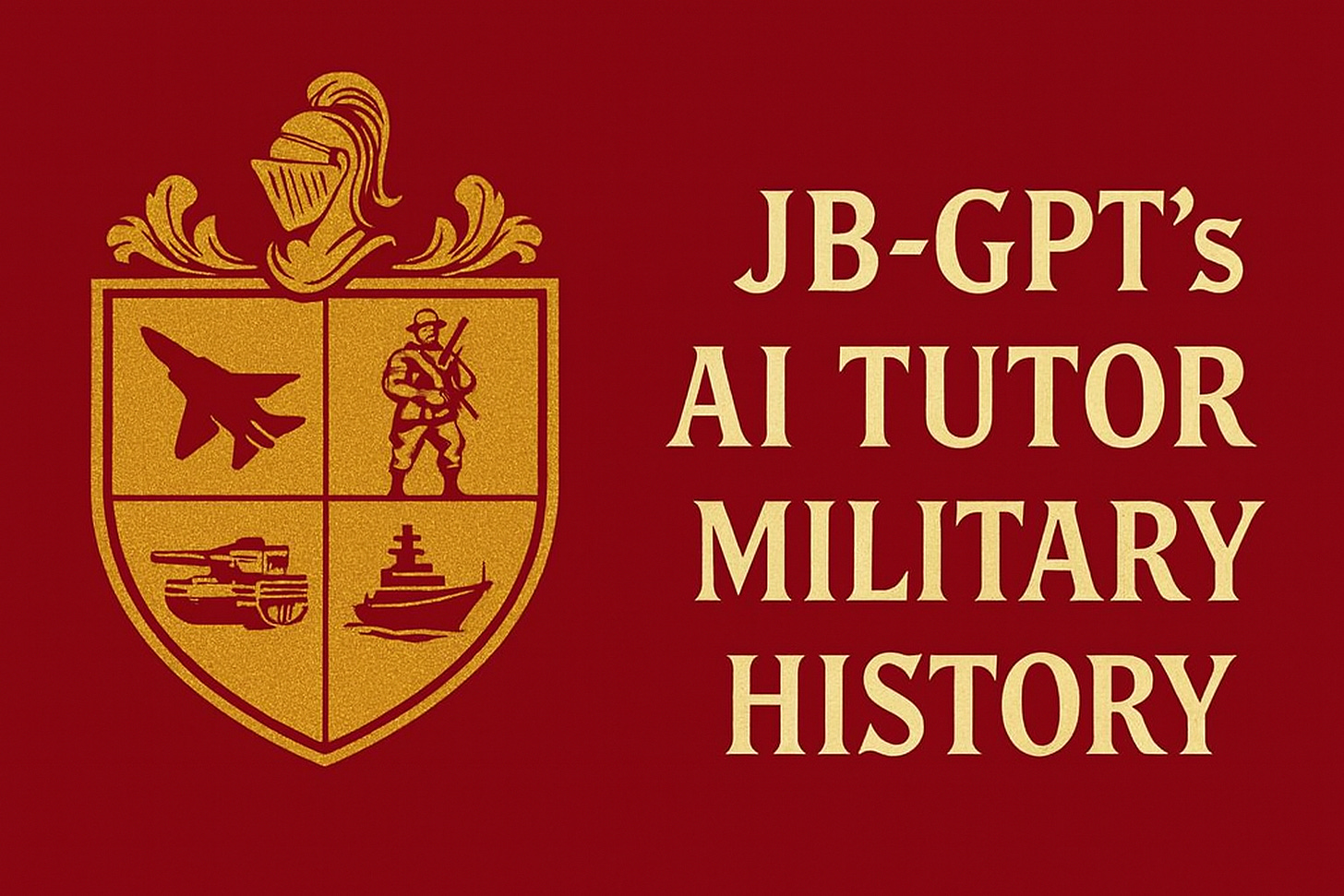AIT 2025-04..Hitler found that 'Will Power' was no replacement for Logistics—WW-12: JB-GPT's AI TUTOR
The fatal consequences of ideology-driven strategy in World War II
COMMENTS TO: zzzz707@live.com.au
Copy and paste everything below this line into the AI of your choice. Fill in or delete where indicated.
============================================
AI INSTRUCTIONS
Preferred use references from: https://www.jb-gpt-prompts.com/jb-gpts-military-references
If additional references are used, they must be drawn from reputable and scholarly sources. These may include academic publications, books from established historians, official government documents, respected think tanks, and recognized academic institutions such as leading universities.
For follow-up question:
Provide 5 (or change number) numbered key points (40–60 words each), with author, book title, and chapter.
Add a separate Harvard-style bibliography.
Suggest 3 more follow-up questions.
Use clear language—no specialist jargon.
Follow-Up Questions (Delete those you don't use, or create your own e.g,, expand on key point four).
01. How did Hitler’s ideology shape Germany’s strategic choices over logistics?
02. What specific campaigns illustrate the failure of German logistics?
03. How did the Allies leverage logistics as a strategic advantage?
Hitler found that 'Will Power' was no replacement for Logistics
Overview (50–80 words):
This brief explores how Nazi Germany's emphasis on ideological willpower—rooted in Hitler’s belief in the supremacy of determination over material constraints—led to catastrophic military decisions. From the invasion of the Soviet Union to the Battle of the Bulge, German command repeatedly underestimated the logistical demands of sustained warfare. These miscalculations undermined campaigns, accelerated strategic failures, and exposed the structural fragility of Germany’s war machine.
Glossary of Terms
01. Logistics – The planning and execution of moving and supplying forces.
02. Operational Reach – The distance a military force can be projected and sustained.
03. Willpower Doctrine – Hitler’s belief that ideological and moral strength could overcome material shortfalls.
04. Blitzkrieg – A rapid, surprise attack strategy focused on speed and short-term engagements.
05. Ostheer – The German Army Group East deployed against the Soviet Union.
06. Attritional Warfare – A style of warfare focused on wearing down the enemy over time.
Key Points
01. Ideology Over Practicality Hitler’s strategic philosophy elevated “will” as a decisive factor in victory, often ignoring logistical reality. He believed Germany could win through sheer determination, a view reinforced by early successes against weak or unprepared enemies (Overy, Why the Allies Won Ch. 1).
02. Operation Barbarossa’s Fatal Assumptions The 1941 invasion of the Soviet Union was driven by ideological contempt and logistical hubris. Planners assumed a swift victory and failed to prepare for long supply lines or Russian winter, crippling the Ostheer (Weinberg, A World at Arms Ch. 5).
03. Eastern Front Overstretch German forces lacked the capacity to sustain operations across vast Soviet terrain. Fuel, ammunition, and food shortages plagued the front, resulting in stalled offensives and exposed flanks—symptoms of a strategic disregard for sustainment (Tooze, Wages of Destruction Ch. 15).
04. Ardennes Offensive Misjudgment The 1944 Battle of the Bulge embodied Hitler’s fixation on surprise and willpower over realistic logistics. The offensive did not have adequate fuel reserves, instead planning to rely on captured fuel, and underestimated Allied air power, dooming the German offensive to failure (O’Brien, How the War Was Won Ch. 18).
05. Comparative Allied Superiority While Germany exalted ideology, the Allies built vast, flexible logistics networks. Their ability to deliver materiel across oceans and continents steadily eroded Axis capabilities—highlighting how logistics, not will, determined modern war outcomes (Mawdsley, World War II: A New History Ch. 11).
Bibliography (Harvard style – no chapter numbers)
01. Overy, R. (1996) Why the Allies Won. Jonathan Cape.
02. Weinberg, G.L. (1994) A World at Arms: A Global History of World War II. Cambridge University Press.
03. Tooze, A. (2006) The Wages of Destruction: The Making and Breaking of the Nazi Economy. Penguin.
04. O’Brien, P.P. (2015) How the War Was Won: Air-Sea Power and Allied Victory in World War II. Cambridge University Press.
05. Mawdsley, E. (2020) World War II: A New History. Cambridge University Press.



